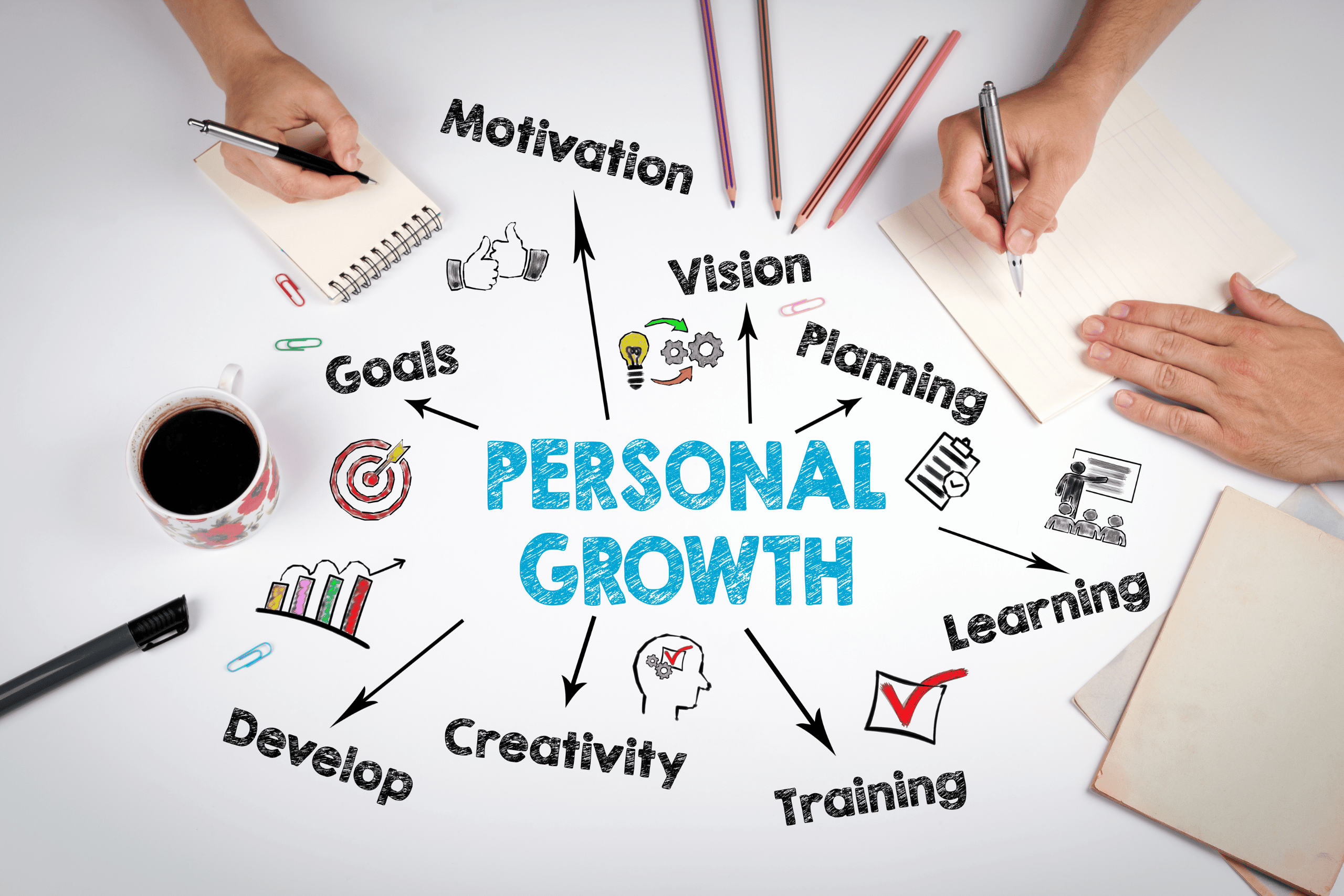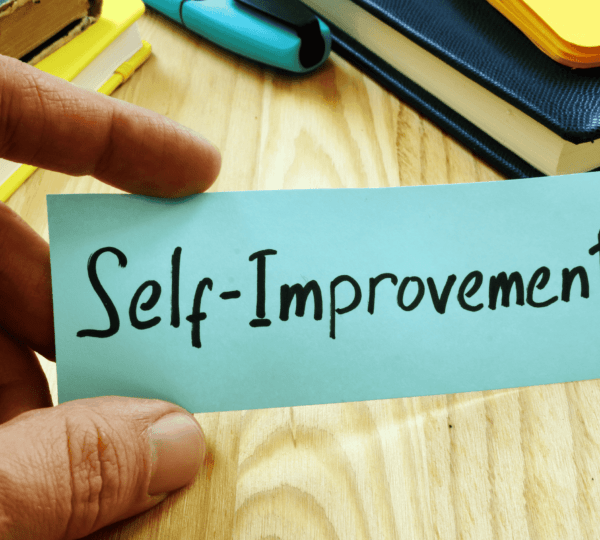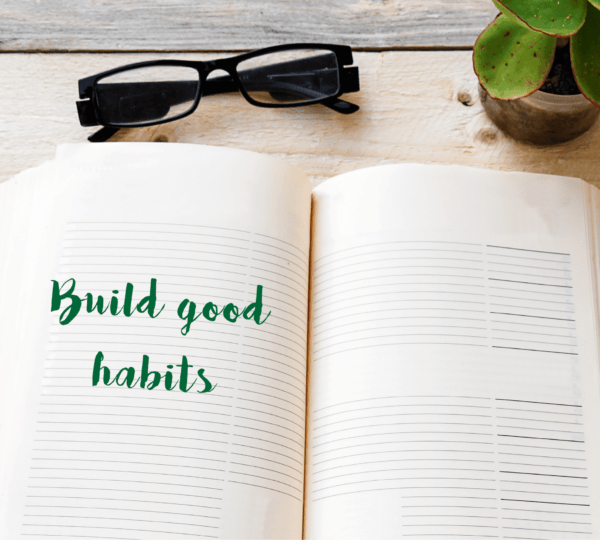
Micro-Habits That Create Massive Personal Growth
It was a Tuesday morning, and the office coffee machine had just broken down. For my colleague Madeline, a self-proclaimed caffeine addict, this was nothing short of a crisis. Begrudgingly, she decided to stop by a local café for a quick fix before starting the day—and she pulled me along.
While waiting for her order, she noticed a small “self-improvement” journal on the counter. By that time, I was on a scheduled call. With nothing else to do, she flipped through the pages.
One passage stood out: “The small things you do daily shape your future more than the big things you do occasionally.” The moment I got off my call, she showed it to me excitedly.
I shrugged it off, and she took her coffee to go. But as the day went on, that sentence lingered in her mind. She brought it up in every conversation, wondering: Could minor, consistent actions truly change the trajectory of her life?
That seemingly insignificant moment triggered a deeper exploration into micro-habits—tiny, consistent behaviors that lead to significant personal growth over time.
If you’ve ever felt stuck in a rut, struggling to make meaningful changes, the problem might not be a lack of ambition but rather a lack of sustainable habits. In this post, we’ll explore the power of micro-habits, how they work, and how you can leverage them to create massive personal growth.
What Are Micro-Habits?
Micro-habits are small, intentional actions that require minimal effort but, when repeated consistently, lead to significant long-term transformation. Unlike traditional habits, which often demand drastic lifestyle changes, micro-habits fit seamlessly into daily routines.
James Clear, author of Atomic Habits, explains:
“All big things come from small beginnings. The seed of every habit is a single, tiny decision. But as that decision is repeated, a habit sprouts and grows stronger.”
For example, rather than aiming to read one book per week, a micro-habit could be reading one page per day. Over time, this adds up, cultivating a strong reading habit without overwhelming you.
Why Micro-Habits Work: The Science Behind Them
The effectiveness of micro-habits is rooted in behavioral psychology. According to a study published in the European Journal of Social Psychology, it takes an average of 66 days for a new behavior to become automatic. However, the likelihood of success increases when the behavior is simple and easy to repeat.
Dr. BJ Fogg, a behavior scientist at Stanford University, emphasizes the power of “tiny habits.” His research suggests that success in habit formation hinges on three things:
- Anchor the new habit to an existing routine – Instead of creating new time slots for habits, attach them to things you already do (e.g., doing one push-up after brushing your teeth).
- Start ridiculously small – When a habit feels effortless, resistance to doing it drops.
- Celebrate small wins – Positive reinforcement solidifies new habits.
Micro-Habits That Lead to Massive Personal Growth
1. The Two-Minute Rule for Productivity
If a task takes less than two minutes, do it immediately. This small habit helps reduce procrastination and keeps your to-do list manageable.
Example: Instead of planning to write a 1,000-word article, start by writing one sentence. This lowers the mental barrier and increases the likelihood of completing the task.
2. Reading One Page a Day
Reading is one of the best ways to expand knowledge, but most people struggle to maintain the habit. Instead of committing to an entire book, simply read one page daily.
Expert Tip: Bill Gates reads around 50 books per year. He attributes much of his success to lifelong learning.
3. The 5-Second Rule for Confidence
Mel Robbins, in her book The 5 Second Rule, suggests that when you feel the urge to do something difficult, count backward from five and take action before hesitation sets in.
Example: If you’re nervous about speaking up in a meeting, silently count down from five and push yourself to speak when you reach zero.
4. Writing Down One Thing You’re Grateful For
Gratitude rewires the brain for positivity. Research from Harvard Medical School suggests that people who practice gratitude regularly experience improved mental well-being.
Micro-Habit: Before bed, jot down one thing you’re grateful for. This small habit fosters long-term happiness.
5. Drinking a Glass of Water First Thing in the Morning
Hydration affects cognitive function, metabolism, and overall well-being. Starting your day with a glass of water helps kickstart hydration levels.
Science Fact: According to the National Academy of Medicine, mild dehydration can impair brain function and mood.
6. The One-Minute Rule for Clutter
Gretchen Rubin, author of The Happiness Project, recommends a simple rule: if something takes less than one minute to clean, put away, or organize, do it immediately.
Example: Instead of leaving dishes in the sink, rinse them right after use.
7. Taking 5 Deep Breaths Before Reacting
Mindfulness practices can significantly improve emotional regulation. Taking deep breaths before reacting to stress helps you respond more calmly.
Expert Opinion: Dr. Andrew Huberman, a neuroscientist at Stanford, highlights that deep breathing activates the parasympathetic nervous system, reducing stress.
How to Make Micro-Habits Stick
Starting micro-habits is easy, but maintaining them requires strategy. Here’s how to ensure they become part of your daily routine:
- Attach Them to Existing Routines: If you already drink coffee every morning, attach a new habit to it—like reading one page of a book.
- Use Habit Tracking Apps: Apps like Habitica, Streaks, and Atomic Habits Tracker help reinforce consistency.
- Set Reminder Triggers: Visual cues (e.g., leaving a book on your nightstand) remind you to follow through.
- Reward Yourself: Celebrating small wins boosts motivation.
Small Steps, Big Changes
Massive personal growth isn’t about making dramatic life changes overnight—it’s about committing to tiny, sustainable habits that compound over time. Just like the coffee machine led Madline to a life-changing realization, small actions today can set you on a path toward meaningful transformation.
The key is consistency. Start small, stay patient, and watch as micro-habits lead to massive change.
References
- Clear, J. (2018). Atomic Habits: An Easy & Proven Way to Build Good Habits & Break Bad Ones.
- Fogg, B. (2020). Tiny Habits: The Small Changes That Change Everything.
- Robbins, M. (2017). The 5 Second Rule: Transform Your Life, Work, and Confidence with Everyday Courage.
- Harvard Medical School (2019). The Power of Gratitude in Mental Health.
- European Journal of Social Psychology (2009). How Long Does It Take to Form a Habit?
- National Academy of Medicine (2021). Hydration and Cognitive Function: What You Need to Know.













